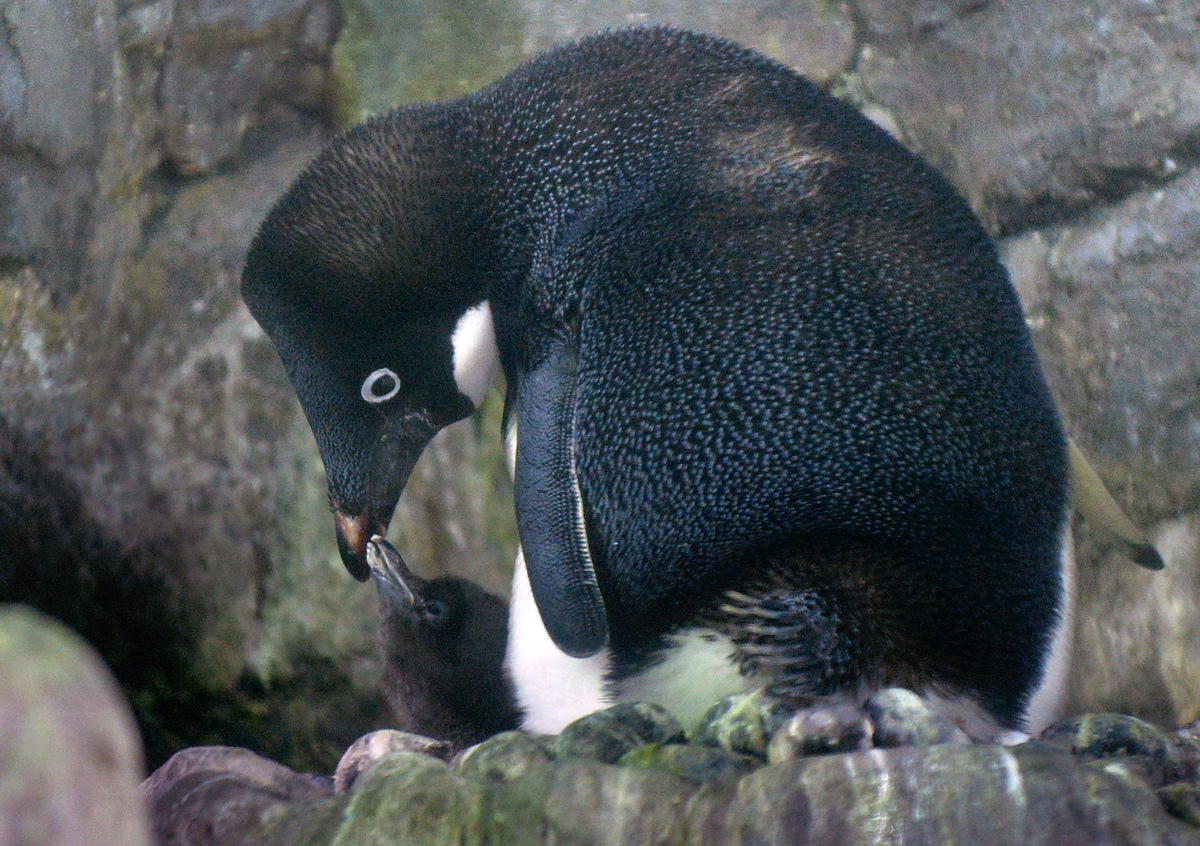Penguin colony at risk after iceberg blocks feeding grounds
Antarctic group could be wiped out within two decades, say researchers

A free daily email with the biggest news stories of the day – and the best features from TheWeek.com
You are now subscribed
Your newsletter sign-up was successful
Scientists say a large colony of Antarctic penguins could be wiped out within 20 years after an iceberg the size of a small country blocked off a large part of the home.
Australian researchers have been studying the development of a colony of Adelie penguins at Cape Denison since the iceberg, known as B09B, collided with the coastline in 2011. Their observations, published in the Antarctic Science Journal, paint a worrying picture for the future of the remaining 11,040 animals.
B09B has settled in Commonwealth Bay, where the colony, which numbered more than 100,000 just a few years ago, once had their feeding grounds. Its position means it is blocking the strong winds that once blew away the ice sheets over the waters and kept a large area open for the penguins to use. The animals now have a 70-mile round journey to feed and as a result, the population has been decimated over just a few years.
The Week
Escape your echo chamber. Get the facts behind the news, plus analysis from multiple perspectives.

Sign up for The Week's Free Newsletters
From our morning news briefing to a weekly Good News Newsletter, get the best of The Week delivered directly to your inbox.
From our morning news briefing to a weekly Good News Newsletter, get the best of The Week delivered directly to your inbox.
The researchers say that many of the surviving colony have become docile and that hatching seems to have stopped altogether, with hundreds of eggs lying abandoned and the bodies of frozen chicks littering the area.
A similar group of Adelie penguins a few miles up the coast from the ice sheets appear to be thriving, suggesting B09B has been responsible for the decline of the Cape Denison colony.
If the situation continues, the scientists say the colony could be wiped out in 20 years.
It seems the penguins' only chance of survival is if B09B shifts, which would allow them access to the Commonwealth Bay feeding grounds once more. However, one of the study's authors, Professor Chris Turney, of the University of New South Wales, told IFL Science it was impossible to know whether the iceberg will move in time to save the colony from extinction.
A free daily email with the biggest news stories of the day – and the best features from TheWeek.com
"We have no idea how long B09B will stay there. It could move this year, or it could be there for decades to centuries," he said.
-
 Why is the Trump administration talking about ‘Western civilization’?
Why is the Trump administration talking about ‘Western civilization’?Talking Points Rubio says Europe, US bonded by religion and ancestry
-
 Quentin Deranque: a student’s death energizes the French far right
Quentin Deranque: a student’s death energizes the French far rightIN THE SPOTLIGHT Reactions to the violent killing of an ultraconservative activist offer a glimpse at the culture wars roiling France ahead of next year’s elections
-
 Secured vs. unsecured loans: how do they differ and which is better?
Secured vs. unsecured loans: how do they differ and which is better?the explainer They are distinguished by the level of risk and the inclusion of collateral
-
 Epstein files topple law CEO, roil UK government
Epstein files topple law CEO, roil UK governmentSpeed Read Peter Mandelson, Britain’s former ambassador to the US, is caught up in the scandal
-
 Iran and US prepare to meet after skirmishes
Iran and US prepare to meet after skirmishesSpeed Read The incident comes amid heightened tensions in the Middle East
-
 Israel retrieves final hostage’s body from Gaza
Israel retrieves final hostage’s body from GazaSpeed Read The 24-year-old police officer was killed during the initial Hamas attack
-
 China’s Xi targets top general in growing purge
China’s Xi targets top general in growing purgeSpeed Read Zhang Youxia is being investigated over ‘grave violations’ of the law
-
 Panama and Canada are negotiating over a crucial copper mine
Panama and Canada are negotiating over a crucial copper mineIn the Spotlight Panama is set to make a final decision on the mine this summer
-
 Why Greenland’s natural resources are nearly impossible to mine
Why Greenland’s natural resources are nearly impossible to mineThe Explainer The country’s natural landscape makes the task extremely difficult
-
 Iran cuts internet as protests escalate
Iran cuts internet as protests escalateSpeed Reada Government buildings across the country have been set on fire
-
 US nabs ‘shadow’ tanker claimed by Russia
US nabs ‘shadow’ tanker claimed by RussiaSpeed Read The ship was one of two vessels seized by the US military